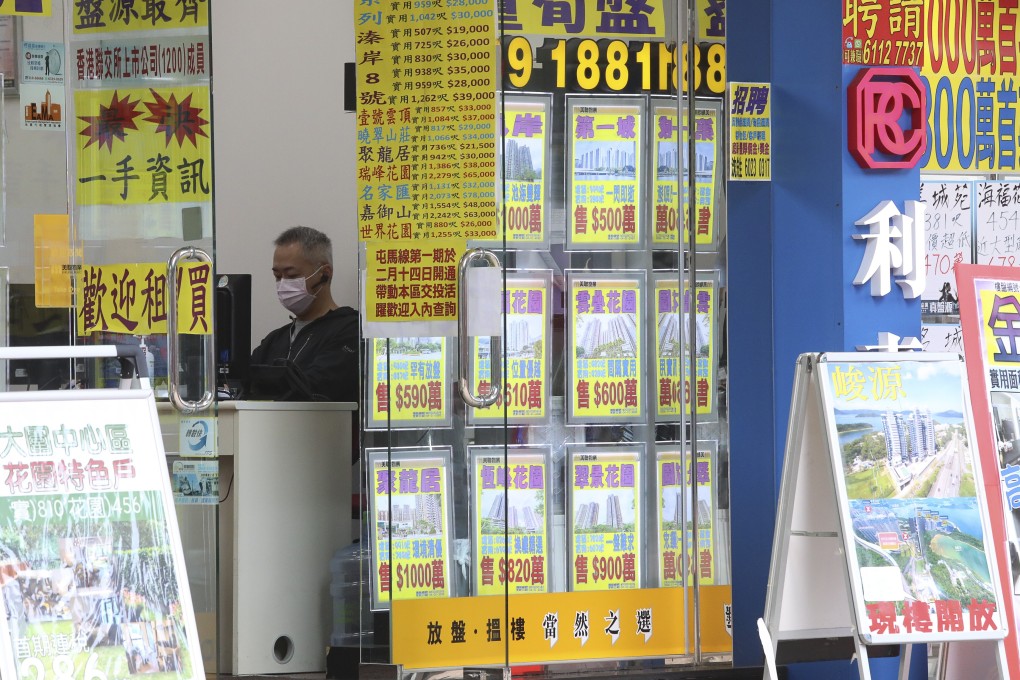Hong Kong’s January lived-in home prices rise, reversing three months of decline as property buyers return to the market
- The price index for lived-in property rose by 0.13 per cent to 380 in January, the first monthly increase since September, according to data provided by the Rating and Valuation Department
- Smaller flats were more popular among buyers, with the price index rising 1.2 per cent last month from December. The index for bigger apartments eased by 0.2 per cent

Prices of lived-in homes rose last month in Hong Kong, ending three straight months of decline, as buyers were encouraged by the city’s tapering coronavirus caseload to return to the property market, confident that the local economy would bounce back from its recession.
The price index for lived-in property rose by 0.13 per cent to 380 in January, the first monthly increase since September, according to data provided by the Rating and Valuation Department. The index was still down by 16.9 percentage points, or by 4.3 per cent, from the record high of May 2019.
“More property buyers revived their buying interest last month after seeing the number of daily new infections fall to double digits,” said Derek Chan, head of research at Ricacorp Properties. “It helps to stabilise home prices.”
The expected deluge of new homes is spoiling buyers with available choices, causing them to be more selective in their commitments, Chan said.
A family in the city would need to save up for 20.7 years to afford a home, according to the annual Demographia International Housing Affordability Study in 2021, which ranks 92 major markets across the world based on median affordability scores. That has changed slightly better than 20.8 years in 2020 and 20.9 years in 2019.